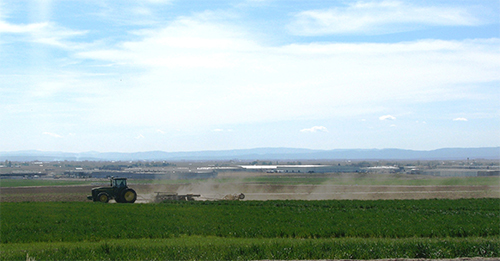State scientists will collect data on several types of air pollution in the community of Quincy. Significant increases in both population and economic development, including 10 new industrial facilities, prompted the study.
The Washington Department of Ecology is conducting the one-year air monitoring study to better understand general air quality and contributions from the different types of pollution that may affect the community.
Ecology will complete installation of one monitoring site in the city that is representative of air quality later this month. Staff will gather information on weather conditions and measure fine particle pollution. Air monitors will also collect data on pollution associated with diesel engine exhaust that comes from sources like vehicles, trains and generators.
Fine particle pollution, like what’s found in smoke and diesel exhaust, can harm people’s health. Generally, young children, older adults, and people with lung or heart diseases are most at risk from exposure.
“We recognized that Quincy had seen a lot of changes that could affect pollution levels,” said Eastern Region Air Quality Section Manager Karen Wood. “Studying air quality will improve how we develop clean air permits and help the community with planning for growth.”
Ecology has completed similar project-based air monitoring studies in other Washington communities such as Coulee City in 2010 and Metaline Falls in 2016. Projects are selected as funding becomes available.
Data from the air monitoring site will be available on Ecology’s real-time air monitoring network. Scientists will evaluate the data, update computer models used to make air permit decisions, and share the study conclusions late next year.


